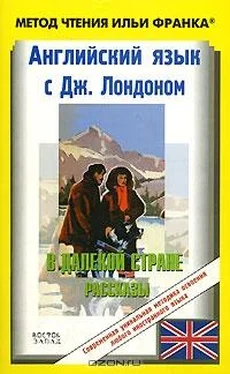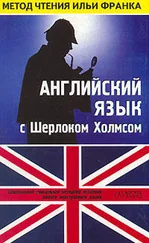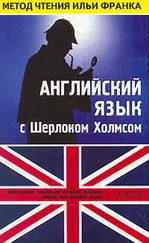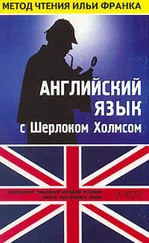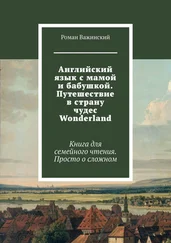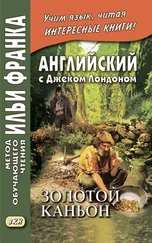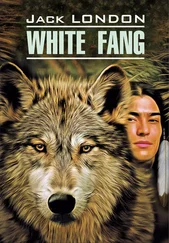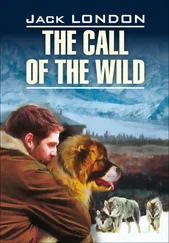Английский язык с Джеком Лондоном. В далекой стране (Северные рассказы)
Jack London. In A Far Country (Stories)
Метод чтения Ильи Франка
THE STORY OF KEESH — рассказ адаптировала Наталья Архипова
A DAY'S LODGING — рассказ адаптировал Олег Овчеренко
NEGORE — рассказ адаптировал Олег Дьяконов
A DAUGHTER OF THE AURORA — рассказ адаптировала Наталья Архипова
THE LEAGUE OF THE OLD MEN — рассказ адаптировал Олег Дьяконов
IN A FAR COUNTRY — рассказ адаптировал Олег Дьяконов
THE LAW OF LIFE — рассказ адаптировала Наталья Архипова
THE STORY OF KEESH
(Сказание о Кише)
KEESH lived long ago on the rim of the polar sea (Киш жил давно, на краю полярного моря; rim — край, ободок ), was head man of his village through many and prosperous years (был первым мужчиной в своей деревне в течение многих и процветающих лет), and died full of honors with his name on the lips of men (и умер, полный почета/окруженный почетом, с его именем на губах /устах людей). So long ago did he live (и так давно он жил) that only the old men remember his name (что только старики помнят его имя), his name and the tale, which they got from the old men before them (его имя и сказание, которое они получили от стариков до них), and which the old men to come will tell to their children (и которое старики, которые придут = будут жить после них, расскажут своим детям) and their children's children down to the end of time (и детям их детей до конца времен). And the winter darkness (зимняя темнота/полярная ночь), when the north gales make their long sweep across the ice-pack (когда северные ветры метут от края до края пакового льда = делают свои порывы от края до края; gale — сильный ветер, шторм; sweep — сильное, порывистое движение; pack — пакет, пачка, связка; пак, паковый лед — многолетний полярный морской лед, просуществовавший более двух годовых циклов нарастания и таяния ), and the air is filled with flying white (а воздух наполнен летающим белым /снегом/), and no man may venture forth (и никакой человек не может отважиться /выйти/ наружу; venture — отважиться, рискнуть; forth — вперед, дальше, вовне, наружу ), is the chosen time for the telling of how Keesh (является избранным временем для рассказа о том, как Киш), from the poorest igloo in the village (из самой бедной иглу в деревне; иглу — хижины канадских эскимосов, сложенные из снежных плит ), rose to power and place over them all (поднялся до власти и положения над ними всеми).
through [TrH], prosperous ['prOsp(q)rqs], venture ['venCq]
KEESH lived long ago on the rim of the polar sea, was head man of his village through many and prosperous years, and died full of honors with his name on the lips of men. So long ago did he live that only the old men remember his name, his name and the tale, which they got from the old men before them, and which the old men to come will tell to their children and their children's children down to the end of time. And the winter darkness, when the north gales make their long sweep across the ice-pack, and the air is filled with flying white, and no man may venture forth, is the chosen time for the telling of how Keesh, from the poorest igloo in the village, rose to power and place over them all.
He was a bright boy (он был смышленым мальчиком; bright — сообразительный, смышленый ), so the tale runs (так сказание гласит; to run — гласить; бегать ), healthy and strong (здоровым и сильным), and he had seen thirteen suns (и он видел тринадцать солнц), in their way of reckoning time (по их способу исчисления времени; reckoning — вычисление, счет ). For each winter the sun leaves the land in darkness (потому что каждую зиму солнце оставляет землю в темноте), and the next year a new sun returns (а на следующий год новое солнце возвращается) so that they may be warm again and look upon one another's faces (так, что они могут быть согреты опять и рассмотреть лица друг друга). The father of Keesh had been a very brave man (отец Киша был очень смелым мужчиной), but he had met his death in a time of famine (но он встретил свою смерть во время голода), when he sought to save the lives of his people (когда он пытался спасти жизни своих людей; to seek to do something — пытаться, стараться что-либо сделать ) by taking the life of a great polar bear (отнимая жизнь большого полярного медведя = убивая большого полярного медведя). In his eagerness he came to close grapples with the bear (в своем стремлении он дошел до тесных схваток/объятий с этим медведем; eagerness — пыл, рвение, стремление; grapple — схватка, борьба ), and his bones were crushed (и его кости были раздавлены); but the bear had much meat on him and the people were saved (но медведь имел много мяса на себе, и люди были спасены). Keesh was his only son (Киш был его единственным сыном), and after that Keesh lived alone with his mother (и после этого Киш жил один со своей матерью). But the people are prone to forget (но люди склонны забывать), and they forgot the deed of his father (и они забыли гибель его отца); and he being but a boy (а /поскольку/ он был только мальчиком), and his mother only a woman (а его мать — только женщиной), they, too, were swiftly forgotten (они тоже были быстро забыты; swift — быстрый, скорый ), and ere long came to live in the meanest of all the igloos (и вскоре стали жить в самой бедной из всех иглу; ere — до, прежде; ere long — вскоре; mean — бедный, жалкий, убогий ).
bright [braIt], eagerness ['JgqnIs], bear [beq]
He was a bright boy, so the tale runs, healthy and strong, and he had seen thirteen suns, in their way of reckoning time. For each winter the sun leaves the land in darkness, and the next year a new sun returns so that they may be warm again and look upon one another's faces. The father of Keesh had been a very brave man, but he had met his death in a time of famine, when he sought to save the lives of his people by taking the life of a great polar bear. In his eagerness he came to close grapples with the bear, and his bones were crushed; but the bear had much meat on him and the people were saved. Keesh was his only son, and after that Keesh lived alone with his mother. But the people are prone to forget, and they forgot the deed of his father; and he being but a boy, and his mother only a woman, they, too, were swiftly forgotten, and ere long came to live in the meanest of all the igloos .
Читать дальше
